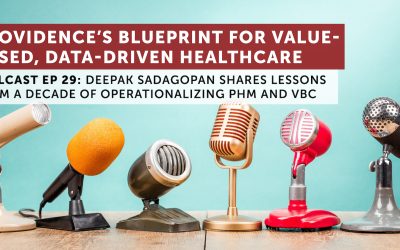If Patients Only Knew How Often Treatments Could Harm Them
Austin Frakt in The New York Times
“It’s somewhat understood that most people occasionally make decisions without a complete understanding of their choice. Yet in healthcare, patients face complex and potentially hazardous decisions when it comes to choosing cancer screenings, surgeries, X-Rays, and other treatments. This new study points to several confounding factors, from aggressive and potentially misleading marketing claims by delivery systems and payers, to under-communication by physicians about the benefits vs risks of certain choices. Beyond potential adverse effects on an individual’s health, this can extrapolate to excessive utilization based on misinformed decisions. Some important food for thought as the US continues to shift costs onto employees.” – Naveen
CMS Bundled Payments for Care Improvement (BPCI) Initiative Models 2-4: Year 1 Evaluation & Monitoring Annual Report (PDF link)
The Lewin Group for CMS
“Basically this was a really long way of the Lewin Group saying ‘Wait until next year’ in regards to the results from the first year of the Bundled Payments program. Simply isn’t enough of an observation period after the interventions began to get any real insights.” – Matt
Ending EHR Absurdities
Michelle Ronan Noteboom in HealthcareIT News
“All too often, it seems common sense has been left out of the cutting room floor when using healthcare IT software. Product design has been oft-criticized from many angles, and deservedly so. Michelle’s entertaining anecdote and spot-on analysis is something we’d love to see more of. Will be interesting to see how product design unfolds in the year ahead, as we (hopefully) move past the strict guideline-driven thinking of Meaningful Use or other public or quasi-governmental programs.” – Naveen
Fines Remain Rare Even As Health Data Breaches Multiply
Charles Ornstein for ProPublica
“While seemingly everyone involved is deeply concerned with being ever HIPAA-compliant, there seems to be not a whole lot of downside to not being HIPAA compliant. This article talks about the lack of enforcement actions and actual fines, in spite of the increasing number of breaches that could or should result in fines. It seems that the relevant enforcement and prosecutorial bodies are “swamped”. The industry has suffered some truly large breaches but slaps on the wrist seem to be common.” – Brian
Consumerism increases retail opportunities and access to coverage and care
Judy Packer-Tursman for Managed Healthcare Executive
“A look at Walmart’s evolving strategy over the last couple of years as they try to tap into the upswell of consumerism in healthcare. Framed against the broader uptick in retail care facilities as well as those models’ burgeoning partnerships with both payer and provider organizations, this is a useful read to get a handle on where the specific opportunity appears to be unfolding (if, that is, Walmart is making the right moves). ” – Naveen
Hospital rankings rarely agree on which facilities are best, study finds
Jason Millman for The Washington Post
“Ratings systems are there to help consumers? This article summarizes the findings of longish Health Affairs article on how hospital ratings systems get to the heart of whether a facility is among the good, the bad, or the ugly. Ratings can cause, rather than dispel, confusion for many consumers/patients because they are less than clear about what they measure and how they do it. Bottom line: ‘there are relatively few hospitals that excel across all the measures.'” – Brian
We Eat Our Veggies — When We’re Eating Out
Anna Maria Barry-Jester for FiveThirtyEight
“As Americans, we eat a lot of junk as confirmed by the Dietary Guidelines Advisory Committee report recently submitted to Congress. Too much red meat, way too much sugar, and too many refined grains without much improvement from the data presented 5 years previously. Until we begin to tackle this issue including getting Americans to cook and eat a lot more healthy meals at home, it will be hard to tackle a lot of the other negative effects this produces including healthcare costs.” – Matt
23andMe Wins FDA Approval for New Genetic Test
Shreya Iyer for Medtech Boston
“Looks like the FDA’s problems with personal genetic testing company 23andMe have been resolved. To us, this is just a reminder of how difficult it is to be truly innovative in the US healthcare market – even when the technology is ready and the consumers are willing, there is regulation upon regulation to deal with. We are optimistic that 23andMe will see continued growth in the years ahead, but we also hope they do their very best to avoid the creation of yet another data silo by working with payers, EHRs, providers, and other companies to make sure data are available across the various pieces of our system.” – Naveen




0 Comments